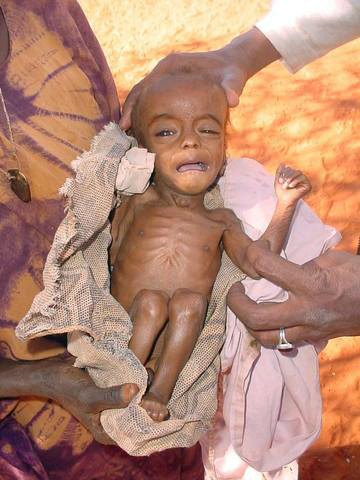
Economic Hardship Threatens Child Nutrition in Nigeria
Nigeria faces a growing crisis as rising food prices and economic hardship push more families into poverty, threatening the health and development of millions of children. Nutrition experts warn that the situation could significantly worsen the nation's malnutrition burden, leading to increased stunting, anemia, and cognitive impairment among children under five.
Empty Stomachs and Impaired Learning
The experts highlight a concerning trend: children are increasingly attending school without having eaten, impacting their ability to concentrate and learn. This lack of adequate nutrition can lead to lower IQs and impaired cognitive development, ultimately hindering their academic performance and future potential.
Soaring Food Prices and Family Struggles
The cost of basic food items has skyrocketed, placing immense strain on families already struggling financially. Staple foods like garri and rice, along with everyday essentials such as bread and water, have become increasingly unaffordable, leaving many families unable to provide adequate meals for their children.
The Alarming Statistics of Malnutrition
The National Demographic and Health Survey 2018 reveals that one in three Nigerian children already suffers from stunting. In 2023, the United Nations Children’s Fund (UNICEF) reported that a staggering 23.5 million out of 35 million Nigerian children are anemic. These figures paint a grim picture of the nutritional challenges facing the nation's youngest population. Beyond anemia, UNICEF also indicates that 12 million children under five are stunted, with an additional three million experiencing wasting.
Experts Call for Urgent Government Action
Nutritionists are urging the Federal Government to take immediate action to address the growing hunger crisis. They warn that children battling hunger are at high risk of becoming malnourished, anemic, and stunted, preventing them from reaching their full potential and contributing to national development.
Professor Ngozi Nnam, President of the Federation of African Nutrition Societies, emphasizes the devastating impact of the economic situation on families. She notes that many families are forced to go to bed hungry, unable to afford even one meal a day. She stressed the direct link between inadequate nutrition and poor academic performance, citing reduced concentration, lower IQ, and impaired cognitive abilities.
Long-Term Consequences of Stunting
Professor Nnam highlights that stunting is not merely a physical issue; it also affects cognitive development. She expressed deep concern about the urgent need to address the economic challenges facing the country to prevent further deterioration of child health.
Mitigating Measures and Government Responsibilities
Professor Nnam suggests that the government should implement short- and medium-term goals to alleviate the burden on citizens and make essential goods more accessible.
Nigeria's Ranking and Global Health Concerns
Nigeria currently holds the unfortunate distinction of being first in Africa and second globally in terms of the number of malnourished children.
The World Health Organization (WHO) recognizes anemia as a serious global public health problem, affecting millions of women and young children worldwide. Anemia increases the risk of infections and death, impairs cognitive performance, and causes extreme fatigue, poor pregnancy outcomes, loss of earnings, and poor growth and development. It is considered a strong indicator of overall health.
The Impact of Insecurity on Food Availability
Professor Wasiu Afolabi, former President of the Nutrition Society of Nigeria, corroborates Professor Nnam's concerns, emphasizing the devastating short- and long-term impacts of malnutrition on children. He also points out that the rising insecurity in the country has further depleted available food supplies, as farmers are unable to safely cultivate their land.
Calls for Policy Changes and Program Implementation
Professor Afolabi calls on the Federal Government to urgently address hunger and poverty through a multifaceted approach involving various policies and programs.
Looming Food Crisis
The Food and Agriculture Organization (FAO) projects that millions of Nigerians in several states, including the Federal Capital Territory, may face a food crisis in the coming months, further exacerbating the existing challenges.
International Agreements and Child Rights
Nigeria signed the Convention on the Rights of the Child in 1991 and enacted the Child Rights Act in 2003, affirming the importance of good nutrition as a fundamental right for every child. However, the current economic hardship threatens the nation's ability to uphold these commitments.


No comments:
Post a Comment